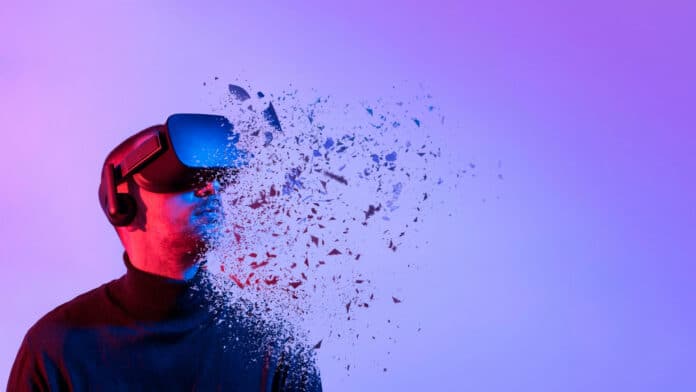New research has attempted to identify methods to mitigate cybersickness and examine its aftereffects. The study by researchers from the University of Edinburgh examines the effects of cybersickness on the cognitive, motor, and reading performance in VR. They also evaluated the mitigating effects of music on cybersickness and the role of gender and the computing, VR, and gaming experience of the user.
The researchers discovered that playing music helped lessen the potential side effects of utilizing digital devices for virtual reality, including headaches, nausea, and dizziness. Cybersickness is significantly reduced when joyful music is a part of the immersive experience, according to a study that examined the impact of music in a virtual reality environment on 39 participants between the ages of 22 and 36.
The impact of cybersickness on a participant’s memory abilities, reading speed, and reaction times was evaluated by scientists through a series of tests. Three roller coaster rides designed to cause cybersickness were presented to participants while engaged in a virtual environment.
Electronic music from musicians or music streams that people might listen to that had been chosen as being peaceful or joyful in a previous study was played during two of the three rides. This music had no lyrics.
The order of the rides was randomly assigned to each participant, and one ride was conducted in silence. After each ride, participants rated their cybersickness symptoms and performed some memory and reaction time tests.
Eye-tracking tests were also conducted to measure their reading speed and pupil size. The participants had taken the same tests before the rides for comparison purposes.
The study discovered that joyful music significantly reduced the overall severity of cybersickness. The intensity of nausea-related symptoms significantly lowered when happy and relaxing music was played.
The researchers discovered that more gaming experience was linked to less cybersickness. Participants with similar gaming experiences, male or female, experienced cybersickness to the same degree.
Researchers say the findings show the potential of music in lessening cybersickness, understanding how gaming experience is linked to cybersickness levels, and the significant effects of cybersickness on thinking skills, reaction times, reading ability, and pupil size.
Dr Sarah E MacPherson of the University of Edinburgh’s School of Philosophy, Psychology & Language Sciences, said: “Our study suggests calming or joyful music as a solution for cybersickness in immersive virtual reality. Virtual reality has been used in educational and clinical settings, but the experience of cybersickness can temporarily impair someone’s thinking skills and slow down their reaction times. The development of music as an intervention could encourage virtual reality to be used more extensively within educational and clinical settings.”
Journal Reference:
- Panagiotis Kourtesis, Rayaan Amir, et al. Cybersickness, Cognition, & Motor Skills: The Effects of Music, Gender, and Gaming Experience. IEEE Transactions on Visualization and Computer Graphics. DOI: 10.1109/TVCG.2023.3247062
